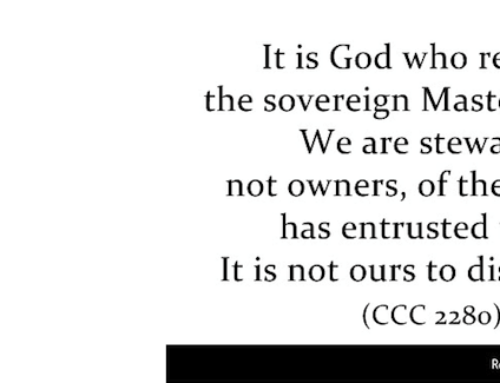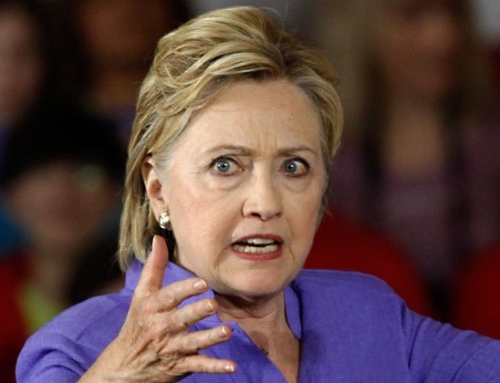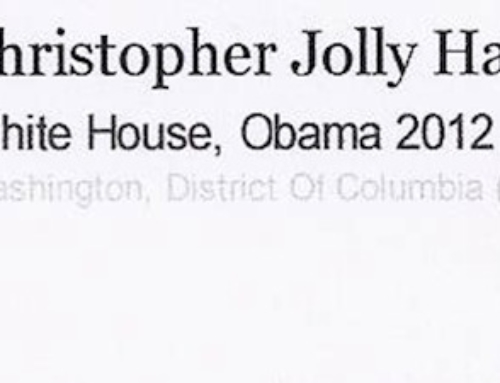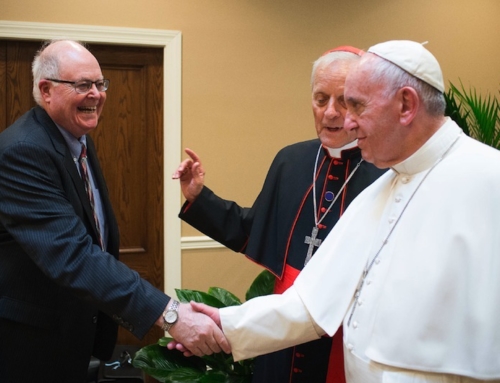by William A. Donohue
(Catalyst 9/1999)
Over the summer, Hollywood treated us to some pretty slimy stuff, much of it aimed at kids. Austin Powers was back, this time drinking diarrhea daiquiris in “The Spy Who Shagged Me” (in England, the term “shagged” is an obscene word for sex). Newspaper advertisements for “Big Daddy” showed a father and son urinating in public and a film version of “South Park” featured Saddam Hussein’s penis and a giant clitoris. And let’s not forget the adolescent boy who was shown masturbating into a hot apple pie in “American Pie.”
When I express my opposition to such trash—or to anti-Catholic movies like “Dogma”—a reporter invariably asks me why I get so exercised. After all, it’s only a movie—it’s not real. Besides, no one has to see it anyway.
My answer generally goes like this: if nothing that is shown matters, then why isn’t everyone smoking on TV and in the movies? Why don’t we bring back the reruns of “Amos ‘n Andy”? Why don’t we reintroduce Tonto as a role model for Native Americans? Why don’t we make a movie that pokes fun at the Holocaust? After all, it’s not real and no one has to watch.
That shuts them up every time. And so it should: those who voice this line are either singularly stupid or downright dishonest. Either way, their selective indignation is disgusting.
If what we see on TV and in the movies has no effect, then why did everyone go into a panic after the shootings at Columbine High School? Here’s what happened.
The Bravo cable network said that following Columbine it would not air a satire about a “teen sniper school.” CBS cited the high school massacre as the reason why it pulled an episode of “Promised Land” (the show featured a shooting in front of a Denver school). Similarly, CBS has delated the debut of “Falcone” (a Mafia-themed drama), this despite the fact that it was touted as one of the network’s new hits. ” It’s not the right time to have people being whacked on the streets of New York,” said CBS Television President Leslie Moonves. His decision to release the show later in the season suggests that there is a right time to continue the whacking.
Over at WB, it postponed the two-part season finale of “Buffy the Vampire Slayer” because it depicted heavily armed high-school kids at a graduation ceremony. WB chief Jamie Kellner confessed that “Given the current climate, depicting acts of violence at a high school graduation ceremony, even fantasy acts, we believe is inappropriate…” Maybe when the climate changes Jamie will bring back the violence. But in the meantime, it’s only fantasy. So why is Jamie so uptight?
Fox announced that it was toning down the violence in a new drama, “Harsh Realm,” and even Vince McMahon, head honcho of professional wrestling, said he would pare back the violence and vulgarity for UPN. And believe it or not, Studios USA, the owner of “The Jerry Springer Show,” promised it was going to edit out violence, profanity and physical confrontation from future shows. But I’m skeptical: what exactly do they expect Jerry’s going to do now—sing?
The TV and Hollywood gang got so sensitive about violence following Columbine that even jokes about the shooting were deemed to be off-limits. That’s why the producers of the “MTV 1999 Movie Awards” didn’t laugh when they heard film director Bobby Farrelly (“There’s Something About Mary”) make a joking reference to the Colorado high school shootings at the show’s taping on June 5. When the show aired on June 10, the joke was cut. It was deemed “inappropriate” by MTV executives.
Now anyone who has watched more than three minutes of MTV knows that it likes to push the envelope. Indeed, it is the foremost carrier of sexually-explicit videos on TV. Complain to them about this and they will tell you to lighten up. So why didn’t they air that joke about Columbine if nothing matters?
All this is to prove that it is dishonesty, not stupidity, that drives the entertainment industry. Dishonesty also marks many TV and film critics, those tube and screen mavens who sanction filth and anti-Catholicism while writhing in pain over smoking and violence. Take, for example, their reaction to “Eyes Wide Shut.”
Stanley Kubrick last’s movie, “Eyes Wide Shut,” opened with mostly raving reviews and a less-than enthusiastic box office reception. Starring Tom Cruise and Nicole Kidman, the film features lots of full-frontal female nudity, as well as an orgy scene. The movie had to be digitally altered (to cover the genitals of the orgy participants) so that the dreaded NC-17 rating could be avoided. It was this that drove the critics mad.
To be more exact, it was the fact that it was a Kubrick movie that had to be altered that drove them mad. Kubrick is held up as some kind of god by many in the film industry, with movies like “Dr. Strangelove,” “A Clockwork Orange” and “2001: A Space Odyssey” to his credit. That the famed director was also a self-hating Jew (he once remarked that “Hitler was right about almost everything”) seemed not to matter.
In July, 35 members of the Los Angeles Film Critics Association took aim at the movie rating system of the Motion Picture Association of America (MPAA). Upset that Kubrick’s last movie had to be digitally altered to get an R rating, the group argued that the time had come to reconsider the entire MPAA rating system. This group was quickly followed by their friends on the east cost when the 28 members of the New York Film Critics Circle issued a statement declaring the MPAA “out of control.”
The New York group claimed that the ratings board had “become a punitive and restrictive force, effectively trampling the freedom of American filmmakers.” It even said that the board “had created its own zone of kneejerk Puritanism.” All this was said about a ratings system that is entirely voluntary and is appreciated by almost every parent in the nation.
The critics, of course, want no limits on anything. What they desperately want—and make no mistake about this—is to demolish all ratings systems so that children can be subjected to adult entertainment. Shamelessly elitist, they seriously believe that there is a fundamental difference between a Stanley Kubrick-scripted orgy and a teen-age boy who masturbates into an apple pie.
Janet Maslin of the New York Times wrote that “As the R is allowed to disintegrate into an outright goal for teen-agers, the system has left itself no way to differentiate between crude frat-boy jokes about having sex with dessert and this intricately nuanced exploration of the nature of sexual bonds.” In other words, Janet objects that the MPAA treats all skin movies alike. She also complains that “The NC-17 rating has degenerated into a sigma,” which, of course, is the purpose of having such a rating (I still prefer the more stigmatized X designation).
If Maslin is unhappy with the MPAA, film critic Roger Ebert is livid. He likes his skin flicks without digital alteration, especially when the skin-maker is someone like Kubrick. “Why couldn’t the studio have distributed this movie NC-17,” Ebert screamed at producer Jan Harlan, “instead of sending out this ‘Austin Powers’ version?!”
Ebert even let Tom Cruise have it. Ebert pressed the actor to explain why a Kubrick picture with him in it wouldn’t have been the grand opportunity to overturn the ratings system. Take the NC-17 rating, Ebert urged, and then when the public isn’t deterred from seeing the movie, the system will self-destruct. Cruise answered, “You’re preaching to the converted here. But Stanley made the decision [to accept digital alteration], you know.”
It is amazing that the very same gang of film critics in L.A. and New York who oppose any restraint on what the public can see, throw themselves prostrate on the floor when tyrants like Cruise tell them what they can and cannot say about him as a condition for granting an interview. To be specific, before the movie was released, Cruise’s public relations firm required reporters to sign a contract giving it the right to view—and veto—any TV segments on the actor before it aired.
Cruise’s publicist, PMK, got what it wanted, thus assuring “Eyes Wide Shut” nothing but good press before it hit the screen. The PMK contract actually stipulated that “the interview and the program will not show the artist in a negative or derogatory manner.” That this gag rule wasn’t protested by the opponents of the ratings system tells us what they’re made of. Just imagine, for one moment, what the reaction would be if I insisted on such a speech code as a condition for an interview.
What these people refuse to recognize is that every free society is governed by limits. Limits on our appetites, limits on our behavior, limits on what we do to ourselves, limits on what we do to others. A society without limits is no society at all—it is an aggregation of individuals who exist in a state of moral chaos. The end result of such a state is not more liberty, but less.
Yet this is what many seem to want—a free-for-all. Accessing the internet these days, viewers can gawk at college girls who have, quite intentionally, developed their own web page that allows voyeurs to watch them through strategically-placed cameras: they can be seen going to the bathroom, showering, having sex, etc. The fee is $30 per month.
This fall Fox will air “Manchester Prep,” a show that, according to one reviewer, features “sex-and-power games that include intimations of brother-sister incest.” Joey Buttafuoco, of Amy Fisher fame (the Long Island Lolita), is not in the porn movie business. He described his new film this way: “There’s a scene in the movie…with a woman in a wheelchair coming down one of the hills in California and there’s a guy with a baseball bat and he wacks her, knocks the heard off. It goes a hundred feet and some dogs eat the head.” Buttafuoco told a stunned Howard Stern that he would like to do this to Fisher.
But none of this really bothers the entertainment industry. Smoking bothers them. Violence bothers some of them, especially when suburban high school kids go on a killing spree. But filth, that’s okay. Catholic bashing, that’s perfectly fine.
Once the rules to this game are learned, it isn’t too hard to figure it out. But just remember that the rules are grounded in deceit and thus can be changed, without notice, at any time. So if Willy is slick, what do we call these people?








